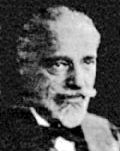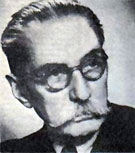The basis for the biorhythm was laid at the beginning of the 20th century by the Viennese psychologist Hermann Swoboda and the Berlin doctor Wilhelm Fliess.
Fliess believed that he had discovered consistent regularities in the medical records of his patients and formulated a derivation from this as a period theory. Both tried to discover a regularity behind the "good" and "bad" moments of a life.
Swoboda is regarded as the founder of the "theory of periods" of biorhythms. At the same time as the Berlin physician and biologist Wilhelm Fliess, he discovered both physical and mental biorhythms, without knowing of them, according to his own statements, but published his findings in 1904 after Fliess.
In "Die Perioden", he describes the spontaneous periodic return of thoughts after 18 hours, 23 hours and after 23 days.
He devotes an extensive chapter to the work of Fliess, but does not mention the underlying findings of Freud's "Die Traumdeutung" of 1900.
Freud devotes a revised edition of "Die Traumdeutung" to Swoboda's theory of periods.
Wilhelm Fliess
German biologist, doctor and medical officer

Fliess (born October 24, 1858) was a specialist for noses and throats. He was also president of the German Academy of Sciences. In 1906 he wrote his first treatise on an alleged temporal law in illness, recovery and date of death, which he believed to be established in the course of his patients' illness - the biorhythm. Wilhelm Fliess was a close friend and confidant of Sigmund Freud. With him Freud carried out his self-analysis and was able to set up a model. However, the friendship between Fliess and Freud became increasingly divided, and they met for the last time in 1903. He died in Berlin on October 13, 1928.
Hermann Swoboda
Austrian psychologist and lecturer at the University of Vienna

The pharmacist's son Swoboda (born November 23, 1873) studied law and philosophy at the University of Vienna and received his doctorate in law in 1897 and in philosophy in 1901. In 1905 he habilitated and became a private lecturer for "Psychologie und deren Geschichte". In 1925 he was appointed associate professor. He died on June 18 1963, in Vienna.